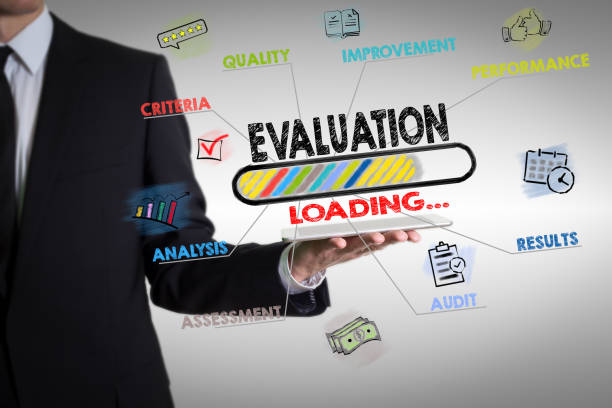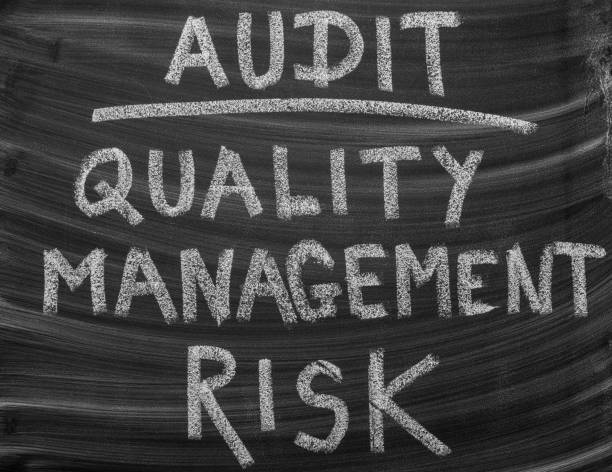In today’s fast-paced financial landscape, mastering practical auditing skills becomes a game-changer for CA students navigating the rigorous path to becoming Chartered Accountants. This article zeros in on those hands-on abilities that bridge theory and real-world application, equipping you with tools to tackle audits confidently and efficiently. Tying into broader student empowerment, the article STRATEGIES TO SUCCEED IN AFFILIATE MARKETING FOR STUDENTS breaks down proven tactics for students to thrive in affiliate marketing as a side gig—think selecting profitable niches, crafting engaging content, driving traffic through SEO and social media, and tracking performance to scale earnings—all while juggling academics for extra financial cushion.
Why Practical Auditing Skills Matter for CA Aspirants
Let’s cut to the chase: auditing isn’t just about crunching numbers or ticking boxes; it’s the backbone of financial integrity in businesses worldwide. For CA students, developing practical auditing skills early on sets you apart in a field where employers demand more than book knowledge. These skills ensure you can spot irregularities, assess risks, and provide reliable insights that stakeholders trust. Without them, even the sharpest theoretical grasp falls flat during articleship or exams.
Consider the evolving role of auditors. Regulations like the Companies Act and ICAI standards keep tightening, making practical expertise non-negotiable. Students who hone these skills during their training periods—often through internships or simulated scenarios—find themselves better prepared for the CA Final exams and beyond. In fact, many successful CAs attribute their career boosts to early mastery of auditing techniques, which directly impacts job placements in Big Four firms or corporate roles.
Moreover, practical auditing skills foster critical thinking. You learn to question assumptions, evaluate evidence, and communicate findings clearly—traits that spill over into other areas like taxation or advisory services. As the profession shifts toward tech-driven audits with tools like data analytics, ignoring these skills could leave you playing catch-up. Transitioning smoothly, let’s explore how these abilities align with the demands of modern auditing practices.
Essential Practical Auditing Skills Every CA Student Should Master

Diving right in, several core practical auditing skills stand out as must-haves. These aren’t abstract concepts; they’re actionable competencies you build through practice. CA students often struggle here because exams test application, not rote learning. We’ll break them down, drawing from real-world examples and expert advice.
Understanding and Analyzing Financial Statements
First off, grasping financial statements is foundational to practical auditing skills. You can’t audit what you don’t understand. This involves dissecting balance sheets, income statements, and cash flows to identify trends, anomalies, or misstatements. For instance, spotting unusual revenue spikes might signal fraud, requiring deeper investigation.
CA students should practice by reviewing actual company reports. Start with simple ratios—liquidity, solvency, profitability—and progress to complex analyses like trend and common-size statements. During articleship, shadow seniors as they reconcile accounts; this hands-on exposure sharpens your eye for details. Remember, errors in statements can lead to massive compliance issues, so accuracy is key.
Tools like Excel for pivot tables or specialized software enhance this skill. Imagine auditing a manufacturing firm: you’d analyze inventory turnover to check for overvaluation. Building this proficiency not only aids in CA exams but also in statutory audits, where financial statement reliability is paramount.
Risk Assessment and Management in Auditing

Next up, risk assessment forms the heart of practical auditing skills. Auditors must identify potential threats—financial, operational, or compliance-related—that could distort reports. This skill demands a keen sense of judgment; you evaluate inherent risks, control risks, and detection risks to plan your audit strategy.
For CA students, start by studying ICAI‘s Standards on Auditing (SAs), like SA 315 for risk identification. In practice, use checklists during fieldwork: interview management, review prior audits, and apply analytical procedures. A common pitfall? Overlooking low-probability, high-impact risks like cyber threats in digital firms.
Managing these risks involves setting materiality thresholds and prioritizing areas. During exams, scenarios test this—say, assessing fraud risk in a cash-heavy business. Pros recommend role-playing exercises: pretend you’re auditing a startup and map out risks. This builds intuition, turning theoretical knowledge into instinctive responses.
Evaluating Internal Controls
Internal controls are the safeguards businesses use to prevent errors or fraud, and evaluating them is a pivotal practical auditing skill. CA students learn this through SA 265, but application is where it counts. You test controls like segregation of duties, authorization processes, and IT safeguards.
In real audits, walk through processes: observe invoice approvals or reconcile bank statements. Weak controls? Flag them and suggest improvements. For example, in a retail setup, poor inventory controls might lead to theft; your evaluation spots this.
Students often undervalue this during prep, but it’s exam gold. Practice with case studies—simulate a bank’s loan approval system and identify gaps. Strong evaluation skills not only ensure audit efficiency but also add value as a consultant, advising clients on robust systems.
Sampling Methods in Auditing
Sampling isn’t random guessing; it’s a scientific practical auditing skill to test populations efficiently. CA students must master statistical and non-statistical methods, per SA 530. This saves time while providing reasonable assurance.

Start with basics: judgmental sampling for high-risk items or random for unbiased tests. In practice, use software to select samples from ledgers, then vouch transactions. A blunder? Inadequate sample size, leading to unreliable conclusions.
For exams, solve problems on sample sizing using formulas. Real-world tip: during articleship, apply monetary unit sampling for receivables. This skill sharpens your ability to extrapolate findings, crucial for opinions on financial statements.
Gathering and Evaluating Audit Evidence
Evidence is the proof that backs your audit opinion, making this a core practical auditing skill. Gather it through inspection, observation, inquiries, and confirmations, as outlined in SA 500. Evaluation? Assess relevance, reliability, and sufficiency.
CA students, don’t just collect—critique. Bank confirmations are reliable; management representations, less so. In fieldwork, document everything meticulously to avoid disputes.
Practice by reviewing mock files: evaluate if evidence supports assertions like existence or valuation. Exams often feature tricky scenarios, like incomplete records. Honing this builds skepticism, a hallmark of great auditors.
Documentation and Reporting in Auditing
Finally, documentation and reporting wrap up practical auditing skills. Per SA 230, maintain clear work papers that an experienced auditor could understand without explanation. Reporting? Draft opinions, highlight issues in management letters.
Students, treat documentation as your defense mechanism—it proves diligence. Use templates during training; in exams, structure answers logically.
Effective reporting communicates findings crisply, using active voice for impact. Poor reports can undermine solid audits, so practice drafting unqualified, qualified, or adverse opinions.

How to Develop Practical Auditing Skills
Building these skills requires deliberate effort. Academic studies lay the groundwork, but practical exposure cements them. Let’s outline strategies tailored for CA students.
Through Academic Studies
Your CA curriculum is packed with auditing modules—leverage them. Focus on ICAI materials for SAs and case laws. Join study groups to discuss applications; solve past papers to simulate exam pressure.
Supplement with online courses from platforms like Coursera on audit basics. Knowsia study hub offers resources for CA prep, including auditing modules that blend theory with quizzes. Consistent revision turns concepts into reflexes.
Practical Training and Internships
Articleship is your golden ticket. Seek firms with diverse audits—statutory, internal, tax—to gain breadth. Actively participate: assist in planning, execute tests, and review reports.
If possible, intern at Big Four; their structured programs teach advanced skills like data analytics in audits. Track your progress in a journal—what worked, what didn’t. This hands-on phase transforms theoretical auditing into practical prowess.
Case Studies and Real-World Applications
Nothing beats case studies for practical auditing skills. Analyze real audits gone wrong, like Satyam scandal, to learn risk oversights. Platforms like Thinking Bridge offer masterclasses with simulations.
Create your own: pick a company, mock-audit its statements. Group discussions amplify learning—debate evidence validity or control weaknesses. This approach bridges classroom and career.
Utilizing Resources from Knowsia Study Hub
For personalized guidance, turn to Knowsia study hub at knowsia.com. Their auditing resources include interactive modules, expert-led webinars, and practice kits tailored for CA students. Incorporate these into your routine for targeted skill-building, ensuring you’re exam-ready and professionally sharp.
Common Challenges and How to Overcome Them

CA students face hurdles like time constraints or complex standards. Overcome by prioritizing high-yield topics—focus on SAs with frequent exam weightage. Burnout? Schedule breaks and mix study with practical sessions.
Tech gaps? Learn tools like ACL or IDEA early. Ethical dilemmas in audits? Study ICAI’s code rigorously. Persistence pays; seek mentors for advice.
Tips for Excelling in CA Auditing Exams
Ace exams by understanding patterns—practice MCQs for basics, essays for depth. Time management: allocate per question. Use keywords from SAs in answers.
Revise holistically: link auditing to accounts and law. Mock tests under timed conditions build stamina. Stay updated on amendments; ICAI notifications are crucial.
Conclusion
Wrapping up, practical auditing skills are your ticket to a thriving CA career—invest in them wisely. From analyzing statements to reporting findings, these competencies ensure you’re not just qualified but exceptional. As you build them, remember resources like Knowsia can accelerate your journey. Dive in, practice relentlessly, and watch your auditing acumen soar.

